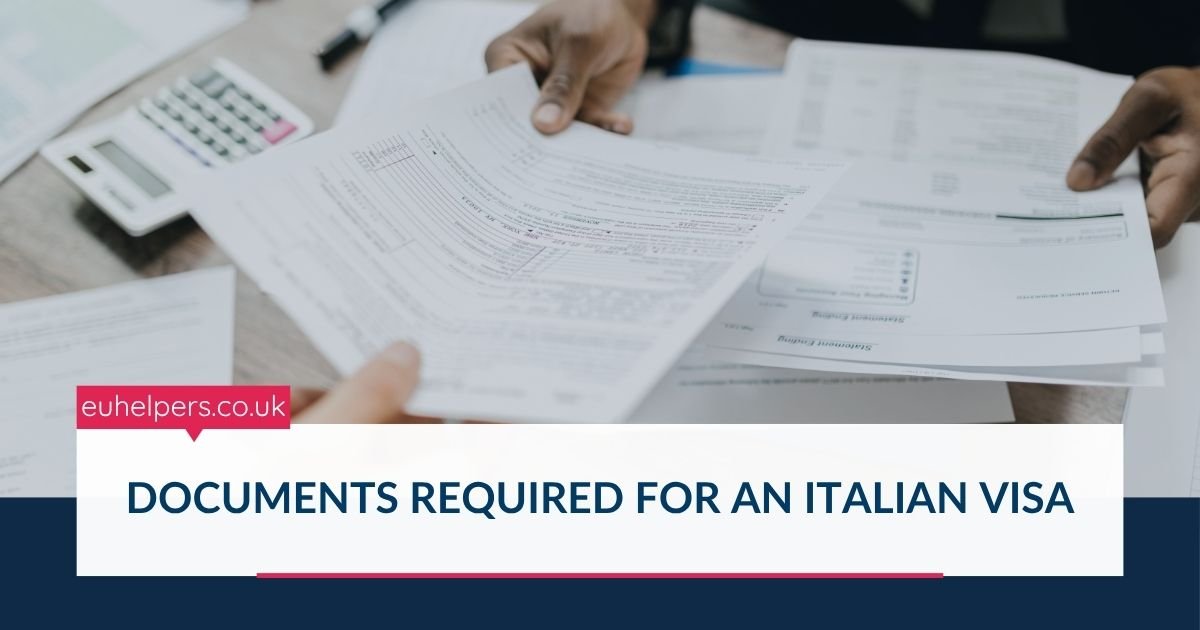Whether you're planning to visit Italy for tourism, study, work, or family reunification, applying for a visa is a crucial first step for many non-EU nationals. The Italian visa application process involves several essential documents and varies slightly depending on the purpose of your visit. Understanding the requirements can help ensure a smooth and successful application.
General Requirements for All Visa Types
Regardless of the type of visa you are applying for, there are a set of core documents required:
-
Valid Passport
Your passport must be valid for at least six months beyond your planned stay in Italy and contain at least two blank pages. -
Visa Application Form
Complete and sign the official Italian visa application form. Ensure that all information is accurate and matches your supporting documents. -
Passport-Sized Photos
Provide recent photographs that meet Schengen visa standards, including specific dimensions and background requirements. -
Travel Itinerary and Accommodation
Include proof of your travel plans, such as a confirmed flight reservation, and evidence of your accommodation in Italy (e.g., hotel bookings, rental agreement, or an invitation letter from a host). -
Proof of Financial Means
You must show that you have sufficient funds to support yourself during your stay. Acceptable documents include recent bank statements, salary slips, or a sponsorship letter from a financial guarantor. -
Travel Insurance
Obtain travel insurance that covers emergency medical care, hospitalization, and repatriation. The minimum required coverage is €30,000 and the policy must be valid throughout the Schengen Area for the duration of your stay. -
Cover Letter
Include a personal letter explaining the purpose of your visit, your travel dates, planned activities, and any other relevant information about your trip.
Additional Documents Based on Visa Purpose
Depending on why you are visiting Italy, additional documentation will be required:
-
For Students
-
Official admission or acceptance letter from an Italian educational institution.
-
Proof of enrollment or pre-enrollment confirmation.
-
Documents showing your financial capacity to support your studies and stay.
-
-
For Workers
-
A valid Italian work permit (Nulla Osta) issued by the immigration office.
-
A formal job offer or employment contract from an Italian company.
-
-
For Family Reunification
-
A notarized invitation letter from a family member residing legally in Italy.
-
Proof of family relationship, such as marriage or birth certificates.
-
Other Supporting Documents
In addition to the primary and purpose-specific documents, you may also be required to submit:
-
Copies of Previous Visas
Especially relevant if you have traveled to the Schengen Area before. -
Civil Status Documents
These could include marriage certificates, birth certificates, or adoption records. -
Translations and Legalizations
Some original documents may need to be translated into Italian and legally authenticated (e.g., with an apostille stamp), depending on the consulate’s guidelines.
Key Tips and Considerations
-
Requirements May Vary
Visa requirements can differ slightly based on the visa type, your nationality, and the Italian embassy or consulate handling your application. Always consult the official website or visa application center for your region. -
Start Early
Begin your application well in advance of your intended travel dates, as processing times can range from a few weeks to over a month. -
Double-Check Your Documents
Incomplete or incorrectly filled applications are common causes of delays or rejections. Review all paperwork carefully before submission. -
Prepare for Additional Requests
The consulate may ask for further documentation or schedule an interview to verify your intentions.
Applying for an Italian visa requires attention to detail and thorough preparation. Whether you're visiting for leisure, education, employment, or family, understanding the necessary documentation and procedures will help streamline the process and increase your chances of approval. Always stay informed and follow the official guidelines from your local Italian consulate or visa application center.

